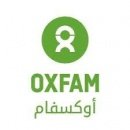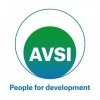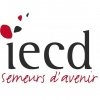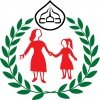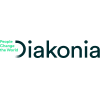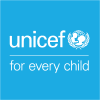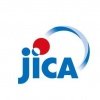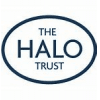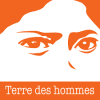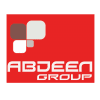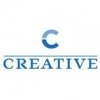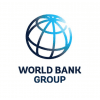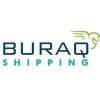Consultant : Women Social entrepreneurship: A MENA Regional
MedUP! Promoting social entrepreneurship in the Mediterranean region
Reference: EuropeAid/155554/DH/ACT/Multi
Terms of Reference –Consultancy
Women Social entrepreneurship: A MENA Regional Perspective
1. BACKGROUND AND RATIONALE
Over the past years, the Middle East and North Africa (MENA) region has had its share of economic challenges, including a slow employment growth and low productivity of enterprises characterized by low wages, high rates of informality and low level of social protection (ILO, 2015). Although the “Arab Spring” was the trigger for a sense of hope amongst many citizens in MENA countries to establish freedom, justice and equality in their societies, the post- “Arab Spring” power sharing systems, have brought even more economic woes and intensified political repression. The adopted economic policies signaled that no change is to be seen and that the region is back to business as usual.
According to the International Labor Organization, youth unemployment, including young women rates in MENA at 23 per cent are higher than any other region (ILO, 2018). According to the OECD only 24 per cent of women of working age in MENA countries are employed (OECD, 2017). 2018 World Bank figures show that women unemployment rates reach 25 per cent in Jordan, 24.3 per cent in Egypt and 22.7 per cent in Tunisia. A number of barriers limit women’s ability to access the labor market and women’s economic development in general, including legal and social barriers. For example, labor laws in many countries restrict women’s working hours or which sectors they can work in; this combined with social expectations that place the brunt of housework and care on women’s shoulders, result in a preference for hiring and promoting men (OECD, 2017). Unequal access to assets and control over resources also seriously limit women’s economic development. Women entrepreneurs also face many gender-specific obstacles to business development ranging from access to finance to business registration and freedom of movement (OECD, Opcit).
A growing body of research shows that enhancing women’s economic participation improves national economies, increases household productivity and living standards, enhances the wellbeing of children with positive long term impacts and can increase women’s agency and overall empowerment. However, policies and programs adopted by government and international development agencies to solve the “MENA Paradox” (a rising educational attainment, yet a stagnant female labor force participation) (Assaad et al., 2018), such as micro-enterprise programmes for women, have failed to create an economic momentum (Mayoux, 1995). Thus, an alternative approach to economic development seems to be needed. According to a study by FEMISE (economic research network), social economy can contribute to boosting the economies in the region and has an important potential for job creation and socio-economic inclusion, in particular for youth and women. FEMISE study also notes that social economy could generate up to 4% of total employment in Southern Mediterranean countries.
2. SCOPE OF THE STUDY
The study is implemented in the framework of the project “MedUP! Promoting social entrepreneurship in the Mediterranean region”, a four-year initiative (from 1 March 2018 to 1 March 2022) funded by the European Union and implemented in Morocco, Tunisia, Egypt, Palestine, Jordan and Lebanon.
The MedUp project is led by Oxfam in partnership with the DIESIS, Euclid Network, Impact Hub International, Sekem Development Foundation in Egypt, Tunisian Center for Social Entrepreneurship in Tunisia, Jordanian Hashemite fund for Human Development in Jordan, Enactus in Morocco, Agricultural Development Association (PARC) in Palestine. Associated partners of the initative are: Tuscany Region, Autonomous Region of Sardinia, Banca Etica, Associazione Imprenditrici e Donne Dirigenti di Azienda (AIDDA).
The project aims at enhancing social entrepreneurship and inclusive growth in the Southern Neighborhood; by promoting enabling environment in the Southern Mediterranean partner countries for the development of the social entrepreneurship sector.
The study will use a feminist analysis to identify challenges and opportunities for social entrepreneurship in the Middle East and North Africa region. It will be based mainly on the existent literature on (social) entrepreneurship and on the outcomes of the MedUP six country studies (Jordan, Palestine, Lebanon, Morocco, Tunisia and Egypt) about the main social entrepreneurship perceptions, actors and priorities including barriers to, and economic impact of, women and youth entering the regional labour force, and the national needs assessments which evaluate the local business support landscape with its needs, potential, challenges and opportunities. The regional study will be comparative and present cross-country/regional analysis of similarities and differences across these six MENA countries and others when possible. A qualitative approach will complement the desk review, to include primary data collection through interviews and focus groups with different stakeholders, specifically women social entrepreneurs identified and facilitated by the MedUP countries’ project managers. The outcomes of the study will inform not only advocacy and policy recommendations, but also the types of businesses supported and the nature of support provided.
3. STUDY OBJECTIVES
Although social entrepreneurship is gaining more attraction across the MENA region in general (Maghrabi, 2012), little has been written regarding what differentiates it from more “traditional” forms of entrepreneurship, especially in terms of its implication on women and women empowerment in general. Starting from identifying the multiple structural constraints and gendered social norms that limit women’s ability to accrue entrepreneurial resources (access and control over resources, assets and properties) and other challenges for women social entrepreneurs in MENA, the study should analyze macro factors that enable or disable women social entrepreneurship across countries and how the later can be a response to the structural impediments to women’s access to decent work.
More specifically, the study pursues the following specific objectives:
• Analyze and explore how and under which conditions can social entrepreneurship be a vehicle to women empowerment.
•Analyze whether social entrepreneurship effectively responds to the structural constraints facing women as well as to the prevailing structural economic challenges in MENA and if it represents an opportunity for social impact, fairer income, reduction of gender inequalities, more secure workplace as well as better prospect for personal development, social integration and decision making for women.
•As final concrete outcome, the study should recommend specific issues and priorities that should be taken into account in the coming activities of the project (mainly in advocacy, policy and influencing but also in the networking and financial support to Social Entrepreneurs).
4. RESEARCH QUESTIONS
The following are suggested research questions that would lead the analysis throughout the research: how gender social norms, stereotypes, access to rights, access and control over resources and decision making and leadership positions, contribute, with other factors, to hindering social entrepreneurship for women in MENA? Do existing social entrepreneurship experiences allow women overcoming some of the structural challenges they face in the economy (gendered bias and discrimination, wage gap, lack of social security, informality, unpaid care work)? Do they contribute to enhancing women’s agency and resilience, in a context of increased push towards privatization of public services? What are the limitation of these experiences? What are some of the successful/empowering women social entrepreneurship models and organizational forms (individual/collective) that can be supported and promoted? What are the needed changes on the social, economic, political and legal/policy levels to enhance women social entrepreneurship capacities in MENA? How to introduce and promote a culture of social entrepreneurship that works for women?
5. SUGGESTED METHODS
The research will be mostly based on secondary data coming from the MedUp country studies and other documentations. Then, it will conduct focus groups and interviews in identified countries only when the information already available need to be complemented in a gender perspective.
1. Desk research
Review of existing literature, policy documents and reports from academia, local, regional; and international institutions, and NGOs; and governmental and donor agencies related documentations in addition to 6 country studies and needs assessments reports produced by the MedUp project and the EU regional study on social entrepreneurship in MENA (2016).
2. Key interviews and focus group discussions
Interviews and focus group discussion with key informants, mainly women entrepreneurs from different social backgrounds and key institutions and organizations in MedUp target countries where there is a need to complement the information already available. Number of focus groups to be decided and questionnaire to be developed and approved by MedUP managers.
3. Data collection and analysis.
Writing of a report after receiving feedbacks from PMUs and the regional coordination. The consultant will be asked to attend a regional workshop to present the findings of the study.
6. ETHICS AND RISKS
Research consultants will commit to abide by Oxfam’s ethical research standards or provide evidence of equivalent institutional standards where the successful applicant is a research institute with its own established standards.
7. REQUIRED DOCUMENTS
Consultants shall submit through email a Technical and Financial Proposals as follows.
The Technical Proposal shall clearly include the following items:
•Introduction (including the consultant’s understanding of the required assignment).
•Qualifications and relevant experience of the consultant.
•Proposed approach and methodology to address the theme as specified in the Terms of Reference.
•Work plan including time frame for data gathering, drafting the research, feedbacks and delivery of the research.
•Two references (including telephone numbers)
The financial proposal shall show all the direct costs related to the implementation of the assignment, while other operational costs such as transportation, communications, etc. can be implicitly included.
•The evaluation of proposals and selection of the consultant will be made using the Quality and Cost Based Selection, with a total score calculated out of 100%, of which 70% is the weight of the Technical Proposal and 30% is the weight of Financial Proposal.
•Consultants shall not be entitled to compensation related to costs of preparing the proposals.
•Proposals shall be submitted by March 19 2019 at the following address: [email protected]
8. DELIVERABLES
The deliverables of the consultancy will be to complete a final report on women social entrepreneurship in MENA, and a presentation of key findings in a regional meeting. The final report will include the following:
1. Executive summary
2. Background
3. Purpose and Objectives of the feminist analysis
4. Methodology
5. Data analysis
6. Key findings
7. Conclusions
8. Recommendations
9. Annexes
9. TIMETABLE
OUTPUTS DATE DUE
1 Launch of the call for consultants March 6
2 Deadline for submission of proposals March 19
3 Selection and award of the contract March 25
4 Sharing the methodology of work for approval March 31
5 Draft study report for comment May 2
6 Final study report including research data May 31
7 Presentation of key research findings June 17
10. STYLE AND LENGTH OF REPORT / RESEARCH PRODUCTS
The report should be around 30 pages’ length (excluding annexes) and should be written in English and in clear accessible language with limited jargon and clear definitions for technical term.
11. RESEARCH MANAGEMENT
The research advertising and process will be managed by the Regional Gender Advocacy Advisor of Oxfam MENA Regional Platform. Consultations will also be held with other relevant project stakeholders when needed. The consultant will be invited to present findings in a regional meeting under the MedUP project.
12. QUALIFICATIONS AND EXPERIENCE REQUIRED
The ideal consultancy candidate should have an excellent command of feminist analysis and is familiar with the political, social and political contexts in MENA, with a proven research track record, including experience organising and conducting field research, knowledge of the policy environment in MENA countries, including economic and labour policies and demonstrable knowledge of economic development. The ability to write clearly and concisely in English will be critical to this research work and Arabic skills are essential for the primary data gathering.
ANNEXES
AVOIDING LIBEL IN RESEARCH: OXFAM GUIDELINES
British organizations are answerable in law courts in the UK and overseas for libel in research materials that are published:
• in the UK;
• in other countries;
• on the Internet.
These guidelines contain relevant information and research standards which all researchers should comply with in order to manage risk.
What is libel?
The publication of any statement that harms the reputation of another.
Who can claim for libel?
Any company or individual. In the UK, governments cannot claim for libel, though individuals within government can. In some countries the rules are wider and libel is used aggressively by governments to silence opposition. Oxfam policy is that allegations that can impact on staff security need to be cleared with the International programme.
What defences are there?
The truth of the allegation is a defence, but only if it can be proved. The below explains the kind of proof that would be needed. There may also be a defence of ‘privilege’, even if we cannot prove the allegation, but in order to succeed in this defence we need to show we have exercised due diligence. The below also sets out what due diligence researchers are required to take.
What evidence is required?
The evidence required varies depending on whether:
1) The information is primary research, i.e. the allegation is being directly made based on its own information, in which case you must hold the evidence; or
2) The information comes from secondary sources, i.e. the allegation is based on another organisation’s research, e.g. a newspaper, in which case you need to be able to demonstrate that all reasonable efforts to establish the truth of the allegation have been made.
1) Primary research
Researchers must wherever possible provide evidence that could be relied upon in court. If that is not possible, they should indicate why it is not possible and what efforts have been made. For example:
Documents
Where possible, documents or copies of documents should be provided, together with the research report that they support. For example, if you allege that an arms dealer has flown a shipment of goods to an embargoed destination, do you have a copy of the flight documents? Or, if we have a copy of a fax giving information, can we identify who has sent it?
Interviews
If the allegation has come out of information given in an interview, the researcher must provide either the original interview notes, or a copy of these, or a note of the interview made as soon as possible after the event. The notes must be dated and signed by the interviewer.
Use of secondary sources
Where the researcher relies on secondary sources, whether newspaper articles, published or unpublished works, or document found on the Internet, the researcher must provide sufficient details of the secondary source to enable Oxfam to obtain a copy. In the case of a published book, this should include the name of the author and publisher, and if possible the ISBN number. In the case of a magazine article, the same information is required but with an ISSN number. In the case of an unpublished work, the researcher must either provide a copy of the work (this is preferable) or the means by which Oxfam can obtain one.
Internet sources
Where the source is on the Internet, the researcher must provide a copy of the downloaded page, which must be dated. This is particularly important as web pages can be taken down easily and without notice.
Allegations of criminal offences
If the researcher has included information in their report that a criminal offence has been committed, you should draw it to the project manager’s attention. In some cases you or your organization may choose to refer the issue to the relevant authorities, e.g. money laundering, or breach of Customs & Excise rules. If you are going to use the allegation in a publication, evidence is particularly important.
Names of companies
When a company is named in a report, provide details of the company’s full name and registration where possible, so that the wrong company is not identify by mistake. On one occasion the publication of a report was halted because the wrong initials had been used to identify a company, and another company with the same initials claimed that its reputation suffered by the false reference.
2) Secondary sources
In order to obtain the privilege defence, Oxfam needs evidence of the due diligence of the researcher in checking the secondary sources. Accordingly:
1. Where the source is more than one year old, the researcher must check whether the information is still valid, and confirm this has been done;
2. Where the source is a newspaper article, the researcher should email or telephone the newspaper to check whether the subject made any complaint and, if so, whether the newspaper published a retraction or correction. The researcher must provide a copy of any such exchange with the newspaper and, if it is in a telephone call, a dated and signed note of the conversation. These steps are essential to obtain the privilege defence. However, if the allegation has been repeated in several national newspapers, and is an undisputed matter of public record, this is not required.
Names of individuals
If an individual is identified, further identifying information should be given where possible, e.g. address, occupation, workplace. Why? Because in one of the most famous libel cases a newspaper reported the name of a man jailed for bigamy. Unfortunately, there were two men with the same name living in the same town. The innocent one won libel damages against the newspaper.
Further advice
If you have concerns or queries about avoiding libel or a potentially libellous allegation in Oxfam’s research, please contact [email protected] for further advice.
GUIDELINES FOR UNDERTAKING RESEARCH WITH ETHICS
Any research must follow ethical principles and particular care must be taken when it involves people as participants or is likely to impact directly upon them. This section sets out minimum ethical standards required in all commissioned research. When context-specific and/or more detailed guidance is provided, researchers must adhere to the relevant protocols and demonstrate that they have done so.
The three principles of research ethics:
• Respect: The researcher must recognize the capacity and rights of all individuals to make their own choices and decisions, and their right to be treated with dignity;
• Beneficence: The researcher’s primary goal must be to improve the lives of participants and protect their physical, mental and social well-being;
• Justice: The researcher must ensure that the benefits for participants are at least as great as the risks.
Putting the principles into practice
These principles need to be reflected in each stage of research including: designing research; selecting participants; gaining their consent; conducting the research; and using the research findings.
1. Designing research
• The research must be designed to reduce risks for participants and increase their possible benefits from its outcome.
• The research must be designed especially to protect vulnerable participants – for example, children or women workers in a garment factory.
• Questions for surveys and interviews should be respectful and phrased in culturally-appropriate language.
2. Selecting participants
• Participants should only be involved in research that has potentially some benefit for them. Possible outcomes, such as a safer society or better working conditions in the long-run, may be benefits if the individual participants consider them to be so. Some participants may feel a benefit simply from having the chance to tell their story. But it is up to them to decide whether or not this is so.
• No individual or group of participants should face more risks than benefits from participating. If the research has a higher risk than benefit for participants, then it should be redesigned to reduce those risks.
3. Gaining the consent of participants
• Researchers must gain informed and voluntary consent before conducting research with participants. This means that the participants must:
– have the relevant information about what the research is;
– understand it, including the possible risks and benefits to themselves;
– be free to choose whether or not to participate, without inducement;
– give their consent, either written or verbal;
– have the right to withdraw from the research at any time.
• The depth of this consent-taking process will depend on the topic of research and the extent to which it could impact on the participants’ lives.
• If research involves children (as defined by national law, or as those under 18) then their parents or guardians must also give consent. It is best to get their written consent, in (the rare) case of disputes later.
• Special care must be taken when seeking consent from vulnerable groups, for example prisoners.
• Researchers must ensure that no participants are forced to take part, for example by their employer, their parents, or by village elders.
4. Conducting the research
• Researchers should be qualified and/or trained for the task. They need to have good self-awareness and strong listening skills.
• Research should be conducted in places that are socially comfortable for the participant and where they are able to speak freely.
• If the participant has incurred direct financial costs for participating then they can be reimbursed, but they should not be paid to participate.
• The participants must be able to contact the researchers, either directly or through local partners.
• If a participant reports any serious adverse effects as a result of participating – such as losing their job, or being physically abused – then this must be reported to the project manager by the researcher.
5. Using the research findings
Participants in research should be told how the research findings are likely to be used (for example as part of a campaign). They must then be asked, and must be free to choose, whether or not:
• they can be quoted in materials;
• their real name can be used in materials;
• their photographic image and/or film of them (if taken) can be used in materials.
Their choices must be clearly recorded and always kept with their testimony and/or the relevant media.
If it is agreed that all or any part of a participant’s testimony should be confidential then that commitment must be clearly recorded and respected. If the testimony is to be made anonymous, or used with a false name, make sure that any other identifying details are also changed.
Additional resources on research ethics
The standards in this guideline are based on the materials produced by FHI 360 (formerly Family Health International) for its Research Ethics Training Curriculum, which includes a free, online self-study course that takes 2-3 hours to complete. Although this focuses on health-related research, it is highly recommended for any social science researcher (see: http://www.fhi360.org/en/RH/Training/trainmat/ethicscurr/index.htm).
The Framework for Research Ethics (FRE), produced by the Economic and Social Research Council (ESRC), provides the basic standards for UK-funded social science research (for further information and a copy of the FRE see: http://www.esrc.ac.uk/about-esrc/information/research-ethics.aspx).
Further advice
If you have concerns or queries about particular ethical issues in Oxfam’s research, please contact [email protected] for further advice.
GUIDELINES FOR DOCUMENTATION OF RESEARCH
• In order to use the research findings in publications and campaigns, you should provide full information and documentation of the sources used so that these can be substantiated.
• The final report(s) must provide endnote references for all specific facts and statistics used. The report(s) must also include a bibliography of the major references used. Please see the Oxfam Style Guide for guidance on reference formats.
• Primary sources must be used wherever possible over secondary sources. For example, the researcher should reference a statistic to its original report, not where it is cited second-hand by a newspaper or website.
• If people have been interviewed in the course of the research, the interview notes should be submitted, signed and dated.
• If quantitative analysis has been done as part of the research, the raw data should be provided, and all steps of calculations shown, in relevant software.
• If Internet sources have been used, a printed out page from the website showing the cited facts and the date the page was viewed should be included with the documentation. It is important to have documented proof of the content, since web pages are often updated or removed.




